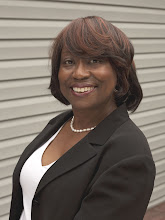
By Anna D. Banks, GCDF
Starting a Business after retirement requires you to plan ahead and build a good foundation. You need to face a number of issues and questions such as:
• What is a good business for you to undertake?
• How much time and effort are you willing to devote?
• Does this match with the time and effort demanded by the business you want to start?
• What are the key processes involved in starting a new business?
• What are the skills that are necessary for business success?
• How much should you invest in a new business?
• How do you go about developing an action plan for the business of your choice?
The process of starting a business can be a challenging, and an exciting experience. It can also be frightening, exhausting, and frustrating. The key to a minimum stress start-up is to plan ahead and build your own business after retirement, in a planned and rational way. Understanding, and planning out, the entire process of start-up makes a huge difference to the end result. There are, some basic steps that are common in planning and starting any business:
Assess your areas of strength. Are you a person who can easily take risks with money? If the idea is scary, it may be better to think twice before considering a business. No matter how you look at it, and how well you play it, being an entrepreneur involves risk. You must be willing to lose money if it comes to that. You must also have the ability and the will to work hard, be able to handle uncertainty well, and possess self-discipline.
Pick the right business. There are generally has two kinds of people. One kind consists of people who love something to the level of passion and are driven to make a career of it. If you belong in this category, make sure you conduct research to check that a market exists for the business. The other kind of person is one who is fascinated by the idea of being an entrepreneur, rather than a particular idea. In this case, pick a business that has instant demand and potential for future growth.
Come up with a solid business plan. Think of it as a map that tells you the direction you should be heading in and helps you to identify important markers you may see on the way. Before you open your doors to clients, think and plan out exactly what you want your business to be. Figure out what makes your product or service different or special, how you plan to attract customers, how you intend to beat competition, and other such essentials.
A major part of the business plan consists of a financial analysis, including:
• The amount of money needed
• How it should be spent
• Amount of profit expected etc.
Figure out where you will get the funding needed to start. Explore options like
• Your own savings
• Your credit cards
• Your retirement accounts
• Second mortgage
• Advance on inheritance
• Loans from friends or family members.
© Anna D. Banks, GCDF
ANNA D. BANKS, GCDF is an adjunct professor at Essex County College, career development and marketing coach, speaker, and author. Anna helps individuals design a game plan for an extraordinary career or business. Since 1996, Anna has helped hundreds of job-seekers, managers, business owners, and sales professionals achieve career success. For more information send an email to Anna@AnnaBanks.com.
________
Author's Note:
Do you have any questions about career development or lifestyle changes for Baby Boomers, which you think others, like you, would want to know the answers? Please place a post on www.AnnaBanks.com or email your questions to me at Anna@AnnaBanks.com.
Tuesday, July 1, 2008
Baby Boomers: Plan Ahead and Build Your Own Business after Retirement
Subscribe to:
Post Comments (Atom)




No comments:
Post a Comment